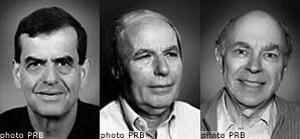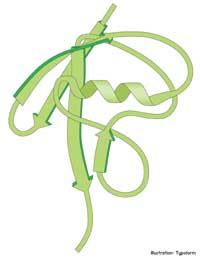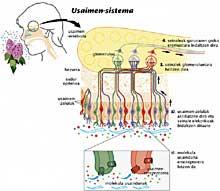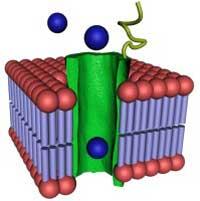Nobel Prize in Chemistry: protein degradation
2004/10/06 Roa Zubia, Guillermo - Elhuyar Zientzia
The cell continues to synthesize and eliminate proteins and these two processes are produced at high speed. They are very controlled processes: the cell synthesizes only the necessary proteins and removes only those that do not need them. The synthesis of proteins aroused great interest in biochemicals from the beginning, but the elimination of proteins was not studied by many. This year's Nobel Prize in Chemistry will be awarded to those who discovered how elimination occurs.

The elimination of proteins is produced through a molecular cycle. This molecule is also a small protein that can be marine for any other protein: ubiquitine. And it is the trick that uses the cell to mark the proteins to be removed: any protein that has adhered ubiquitine will reduce the cell.
To do this, it introduces proteosoma into a structure called proteosoma. Proteosome is a structure composed of many other proteins, within which two processes are given: on the one hand, the cell reduces the protein marked and on the other, recovers the adhered ubiquitine. The cell recovers ubiquitine for reuse as a marker. In this way the cycle is closed.

The operation of this cycle is free for the cell. It should be taken into account that by degradation of the protein amino acids are obtained which can be used in other processes. Therefore, the cell also recycles amino acids.
In short, the functioning of the cell is a chain of cycles. For example, if protein production and removal fails, the balance can break and serious diseases can appear. In some cases, cancer has also been caused by problems in the ubiquitine cycle.

Gai honi buruzko eduki gehiago
Elhuyarrek garatutako teknologia






